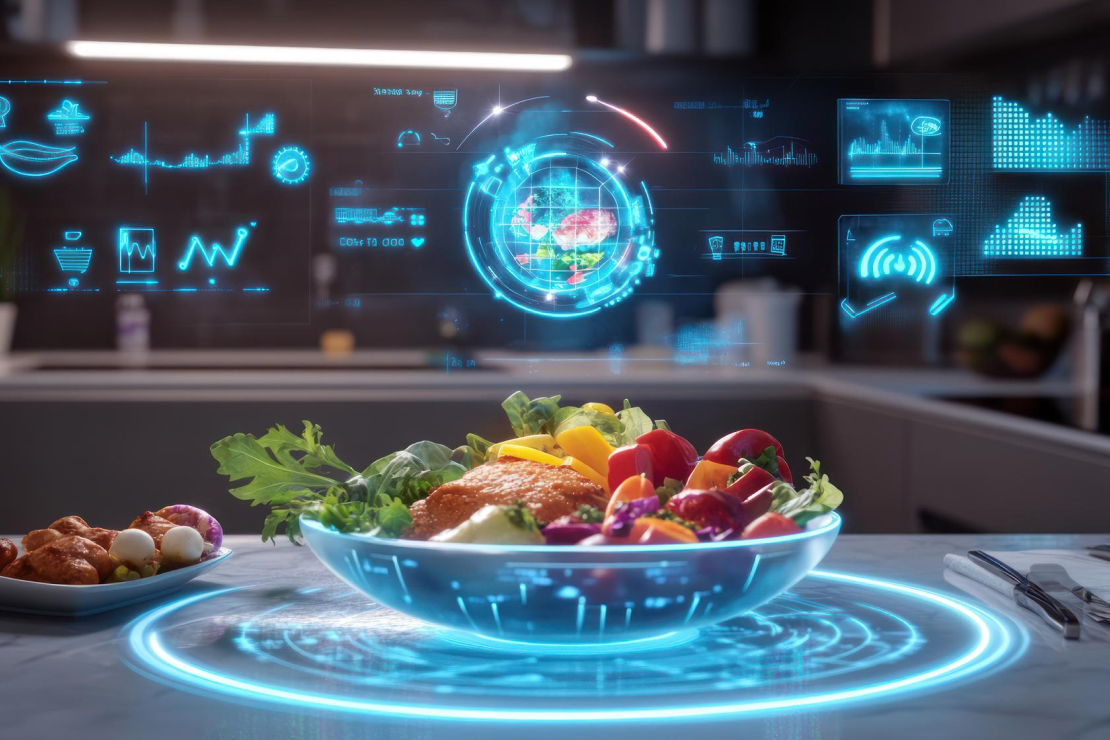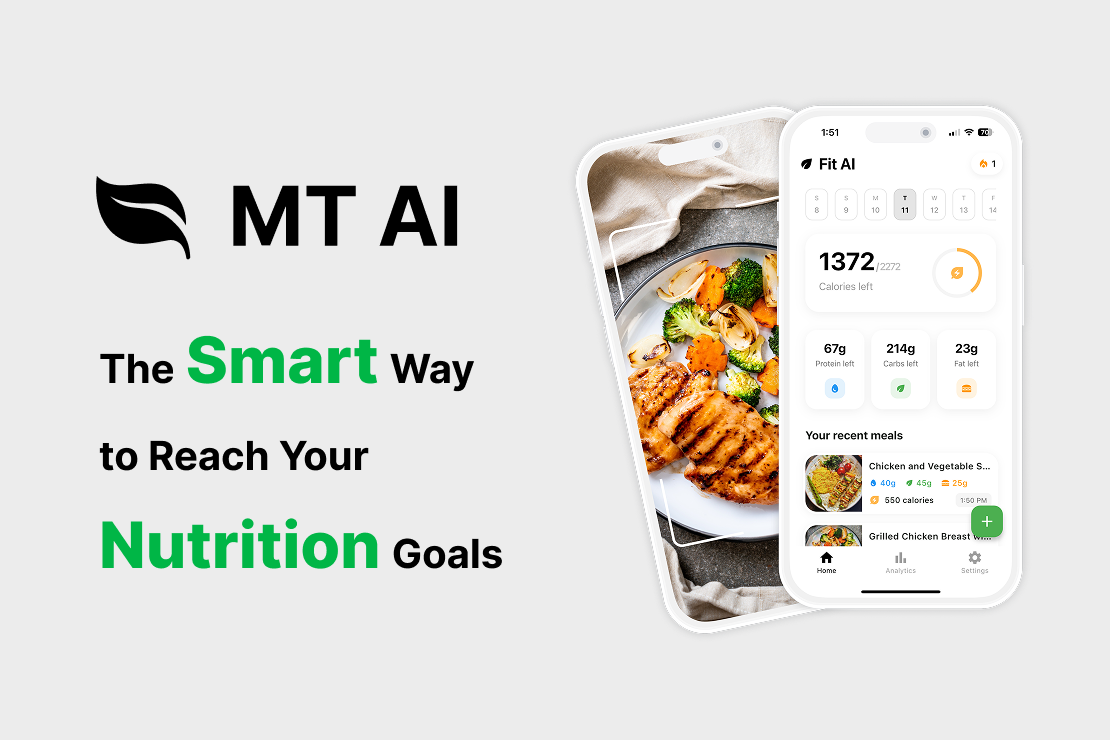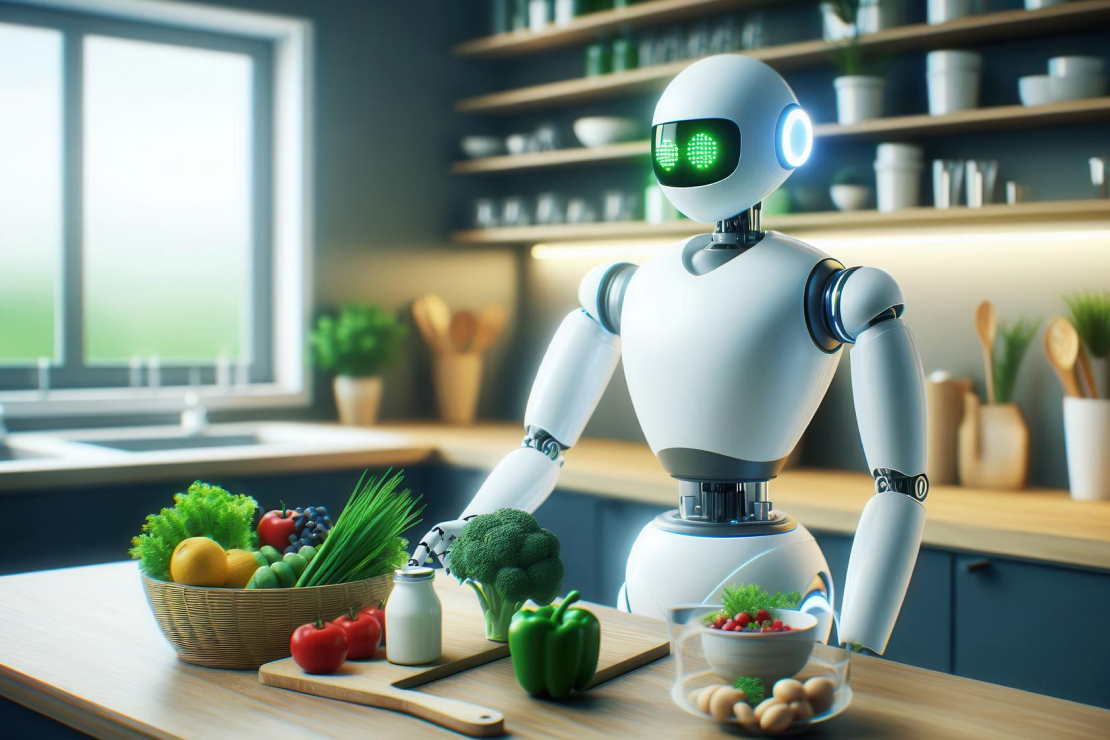AI Meal Recommendations: How Accurate Are They Based on Your Goals?
AI promises personalized meal plans, but how accurate are its recommendations for your specific goals? We dive into the technology, its current capabilities, and what to expect from AI-driven nutrition advice.

Table of Content
The Promise of AI-Powered Meal Plans: Personalized Nutrition at Scale
Artificial intelligence is rapidly moving from the realm of science fiction into our daily lives, and nutrition is one of the most exciting frontiers. AI-powered nutrition coaches promise to deliver hyper-personalized meal recommendations tailored to our unique goals, whether that's fat loss, muscle gain, or optimizing athletic performance. But as this technology becomes more mainstream, a critical question arises: How accurate are these automated suggestions, and can they truly replace the nuanced guidance of a human expert?
How AI Generates Your Personalized Meal Recommendations
The power of AI in nutrition lies in its ability to process and synthesize vast and complex datasets that are beyond human capability to analyze in real-time. An AI nutrition coach doesn't just follow a simple formula; it creates a dynamic, learning model of you. The key data points include:
- Your Foundational Profile: Age, weight, height, gender, and body composition provide the baseline for metabolic calculations.
- Your Stated Goals: The AI algorithm adjusts its recommendations based on whether your primary goal is fat loss, muscle gain, or maintenance.
- Your Activity Levels: By integrating with wearables like smartwatches, the AI gets real-time data on your daily movement, workout intensity, and sleep patterns, allowing it to adjust your energy needs dynamically.
- Your Food Logs and Preferences: This is where machine learning shines. The AI learns your taste preferences, common meal times, and even your unique metabolic response to certain foods over time.
- A Vast Nutritional Database: The AI cross-references all this personal data with a massive, constantly updated database of food composition, nutritional science, and dietary research.
Accuracy Analysis: How AI Performs for Different Fitness Goals
Fat Loss
Accuracy: High. AI excels at creating and maintaining a calorie deficit. It can precisely calculate energy needs and suggest low-calorie, high-satiety meals. It's particularly good at identifying hidden calories and suggesting smarter swaps.
Muscle Gain
Accuracy: Moderate to High. AI is effective at ensuring sufficient protein and calorie intake. However, it may be less nuanced in optimizing nutrient timing around workouts, a factor where human coaches often excel.
Athletic Performance
Accuracy: Moderate. While AI can manage macro targets for fuel and recovery, it may not fully grasp the complex needs of elite athletes, such as specific micronutrient requirements for different training phases or competition-day fueling strategies.
The Unseen Limitations of Current AI Nutrition Coaches
- The Lack of Human Context: AI operates on data. It doesn't understand that you have a wedding to attend on Saturday, that you're feeling emotionally drained after a tough week at work, or that a specific food holds deep cultural or sentimental value. This is where a human coach can provide empathy and creative, real-world solutions.
- The "Garbage In, Garbage Out" Principle: The AI's recommendations are only as good as the data it receives. If you log your food inaccurately or inconsistently, the AI's advice will be flawed. While features like photo-logging reduce this error, it's not completely eliminated.
- The Absence of Intuition and Nuance: An experienced human coach can read between the lines of what a client says, picking up on subtle cues in their voice or body language. They can provide motivation and accountability in a way that an app notification cannot. AI lacks this intuitive, empathetic connection.
The Hybrid Future: AI as a Tool for Human Experts
The future of nutrition coaching is not a battle between AI and humans, but a synergy between them. AI can serve as an incredibly powerful tool for human nutritionists, automating the tedious data collection and analysis, and freeing up the expert to focus on the high-touch, psychological aspects of coaching.
Conclusion: A Powerful Ally, Not a Perfect Replacement
AI meal recommendations have reached a remarkable level of accuracy, particularly for individuals with common goals like general fat loss or muscle gain. They offer a cost-effective, accessible, and highly precise way to manage your nutrition. For the average person, an AI coach can provide a level of personalization that was previously unimaginable.
However, it's crucial to recognize the technology's current limitations. For those with complex medical conditions, elite performance goals, or deep-seated psychological barriers around food, AI should be viewed as a powerful assistant to, not a replacement for, a qualified human professional. The ideal approach is to use the data and insights from AI to have more informed, productive conversations with a human expert, creating a truly integrated and effective nutrition strategy.
Start Your Health Journey Today
Download Macro Tracking AI and take control of your nutrition with the power of artificial intelligence.
Download on App Store

